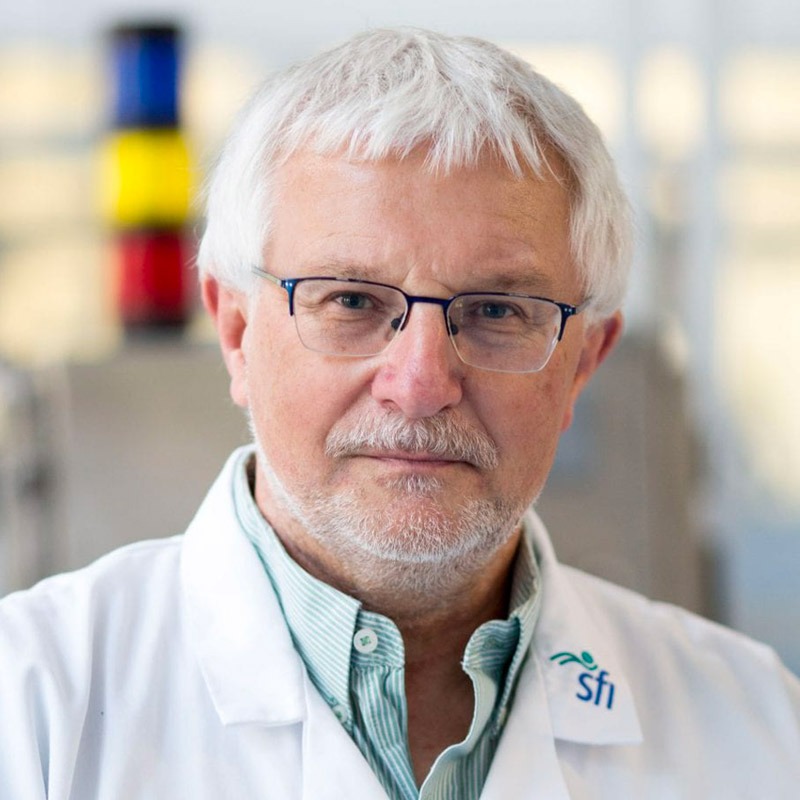
Dr Simon Lawrence, University College Cork, Dr Andrea Erxleben, Dr Constantina Papatriantafyllopoulou, Dr Humphrey Moynihan, University College Cork, Prof. Kevin M. Ryan, Assoc. Prof. Luis Padrela, Prof. Mark Davies, Prof. Patrick Frawley and Prof. Michael Walsh, University of Limerick.
University of Limerick
Prof. Sarah Hudson
University of Limerick
Overall Objective
Key Scientific Expertise
- Crystal engineering
- Structural crystallography
- Database mining
- Solid-state characterisation
- Solid – liquid thermodynamics
- Co-crystal design and discovery
- Crystal structures
- Polymorphism
- Metallodrugs
- Modelling of crystallisation processes
- Phase diagrams
- Crystallization thermodynamics
- Nucleation and growth kinetics
Industrial Significance
A crystalline material is the active component (drug substance) of almost all orally delivered medicines. This is largely because crystallisation can afford high purity drug substances that are consistent and can be processed at large scale. New crystalline materials are able to offer IP protection for new chemical entities and existing molecules. When the crystalline form of a drug molecule has low solubility, is difficult to crystallise, incorporates impurities or exhibits poor stability then it will not be suitable for ultimate use in a drug product. Regulatory bodies require extensive screening and characterisation of the crystal forms of drug compounds.
This theme will:
- Reduce time to market and develop advanced manufacturing strategies
- Improve efficacy of drug products by developing predictive modelling tools for determining the structure and solubility of single and multi-component crystals to make screening for SCCMs and MCCMs faster and less costly.
- Develop predictive modelling tools for determining the compatibility of active drug substances with inactive polymeric and molecular excipients in order to de-risk formulation problems for active drug substances.
- Fundamental understand nucleation and crystal growth kinetics for the purpose of controlling the product crystal size distribution.
- Develop methods to enable rational selection of additives and methods for product isolation.
- Develop a high throughput microfluidic platform to assess the impact of active and inactive co-formers upon biological activity in a more efficient manner.
Materials Research Byte
Check out this 3-minute video from Ahmed Ahmed at the University of Galway on Metal-Organic Frameworks For Drug Delivery.
Ahmed Ahmed
University of Galway
Ahmed is a researcher working under the supervision of Dr Constantina Papatriantafyllopoulou. Ahmed works on Metal-Organic Frameworks (MOFs), a crystalline porous materials composed of metal ion/clusters and bridging organic linkers. Many drugs suffer from poor solubility, bioavailability and are rapidly metabolized and excreted. MOFs have been shown to allow for large drug loadings and overcome some of these issues.



















